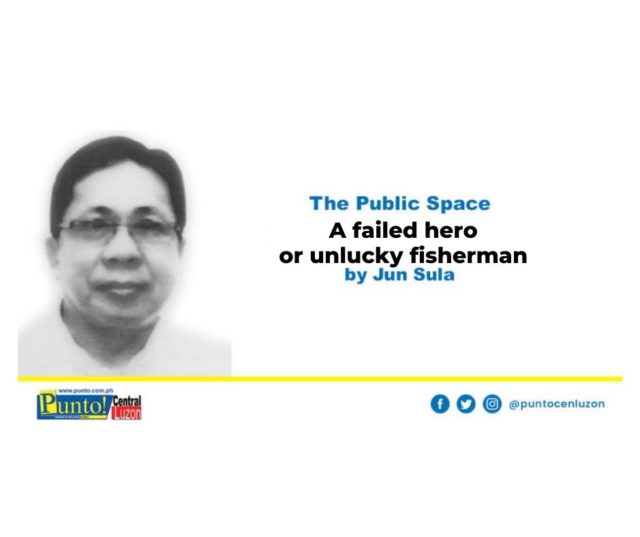BACK IN the day, when then presidential aspirant Rodrigo Roa Duterte was younger and healthier, he promised to ride a jet ski from sea to shining sea and plant a Philippine flag in its territories in the South China Sea. Shades of the iconic Iwo Jima heroic scene during World War II.
Of course, it was only a promise, and in politics, promises are, more often than not, meant to be broken, anyway.
Instead, Duterte, the popular and masking as populist President, took the convenient route of least resistance and had tea instead with his Chinese idol, Xi Ping, in Beijing. And the rest, as the cliché puts it, is history — a sad and saddling one.
In another time and place, he vowed to rid this country of corruption, not even a whiff of it. The latest revelation in his gloomy horizon is of a Philhealth and another agency riddled with humungous crookedness, and he’s the first person to deny that his trusted man on top it is a crook as a Senate investigation report indicated in certain terms.
In sotto voce, Duterte has expressed his unabashed affection for China and, in his last SONA, had confessed to his being inutile to as much as rub it the wrong way or ruffled the feathers of Winnie the Pooh to assert Philippine rights over its territories in the SCS, a constitutional duty.
Putting China on the pedestal of Philippine politics has been de rigeur in the last four years or so of his leadership, or the lack of it as described by no less than Vice President Leni Robredo.
Of late, Duterte the once-and-future aspiring hero from the South has offered to resign, ostensibly on account of deep and widespread corruption gnawing at the country that he has failed to stop. Duterte is helpless to stop the termites, friendly or not.
Only, as some cynics are quick to point out, the resignation offer may be as good as the botched jet ski adventure.
In Ernest Hemingway’s short novel, The Old Man and the Sea, an old veteran fisherman, Santiago, sailed far out into the sea to fish, after long, long days of being unlucky. Finally, the 84-year old Santiago, got lucky. He caught a marlin, a great and beautiful fish he had never seen or caught before. His village would be happy to see how lucky he was.
Soon, Santiago realized that the prized catch was too powerful for him to tow back to shore and bring home. The opposite happened: the big fish pulled him farther out into the sea and he was helpless to reverse the situation. Later, the marlin died and was devoured by sharks and Santiago was too old and too weak to stop them. He came back to port as empty handed as when he left it and more: his old body and legendary ego badly wounded.
In a way, Duterte can be likened to Santiago when he decided that his so-called independent foreign policy leaned China-wise. China’s promises were too hard to refuse: loans, investments, free lunches and tea for two on the side.
The true details, however, are the devil’s, according former Supreme Court Justice Antonio Carpio declared the other day. Only 5 percent of the $24 billion promised by China in loans and investments has materialized. And even if that is fulfilled, it’s a pittance when compared to the potential loss in resources such as fish, oil, gas and other mineral resources in the SCS. That is, if Duterte keeps wringing his wrist and pity partying while China muscles its way into Philippine territories one after the other.
Not a fair deal.
In his book ‘When China Rules the World’, Martin Jacques describes China as the elephant in the room around whom more and more countries gravitate, especially small ones who can’t resist or refuse its power and wealth.
The Philippines under Duterte is no doubt among those countries, speaking under their voices like ours that China could be like Santiago’s marlin catch.
Some of them, however, are realizing belatedly that the utopian view of China may actually be a dystopian one, especially those reeling under the debt trap they fell into with China.
Armchair pundits are saying that Duterte’s speech before the United Nations General Assembly maybe substantively reflective of this sense, given China’s failure to bring the deliverables and its continued reconfiguration of SCS to its advantage.
Is there an implicit mea culpa there?
In the presidential debate between President Donald Trump and Vice President Joe Biden yesterday, the latter summed his assessment of the predicaments in the United States this way: We are the way we are because the way you are, telling Trump. It is what is because you are who you are, he said.
Is the Philippines the way it is, because of a failed hero or an unlucky fisherman leading the country?





